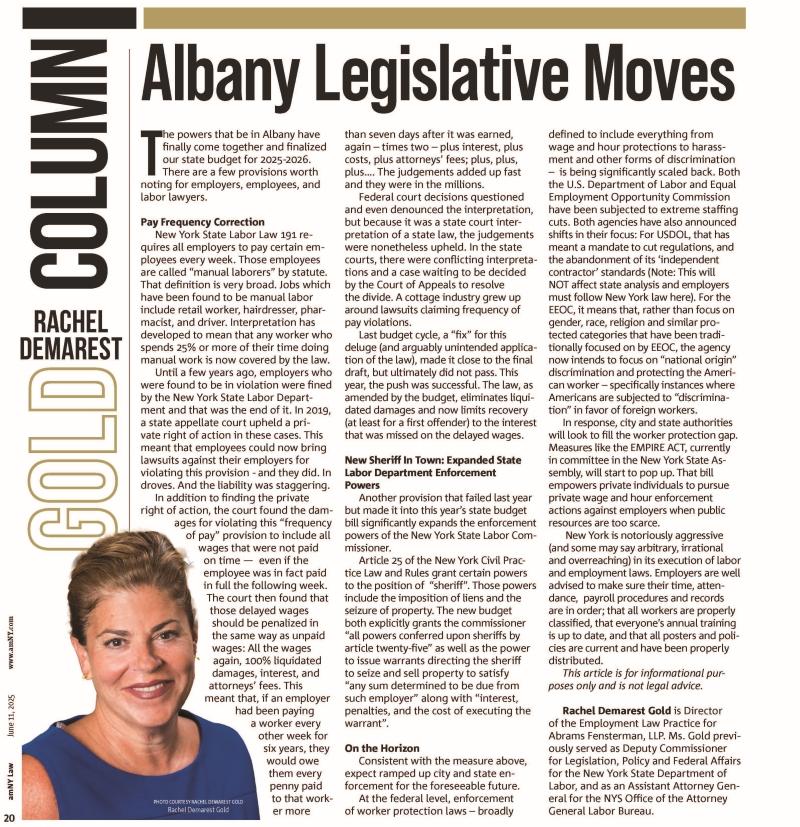By Justin T. Kelton | January 31, 2018
Plaintiff Who Obtains a Corporate Benefit May Not Target a Stockholder to Pay a Fee Award
In a recent decision, Judge Andre G. Bouchard of the Delaware Court of Chancery addressed the question of whether a plaintiff who obtains a corporate benefit through litigation may target a particular stockholder to pay a common fund fee award.
In a recent decision, Chancellor Andre G. Bouchard of the Delaware Court of Chancery addressed the question of whether a plaintiff who obtains a corporate benefit through litigation may target a particular stockholder to pay a common fund fee award when the corporate beneficiary cannot be liable pursuant to a bankruptcy court discharge order in City of Miami General Employees’ and Sanitation Employees’ Retirement Trust v. C&J Energy Services, No. CV 9980-CB, 2018 WL 508583 (Del. Ch. Jan. 23, 2018).
Case Background and Procedural Posture
In C&J Energy, the plaintiff, a stockholder of C&J Energy Services Inc., sought an award of $5 million in attorney fees for its alleged role in obtaining a $250 million price reduction in the amount of cash that C&J Inc. needed to pay Nabors Industries in connection with a merger transaction.
The plaintiff argued that its litigation strategy resulted in the substantial price reduction, and that the price reduction was akin to a common fund. Thus, the plaintiff argued, under the corporate benefit doctrine, it should be entitled to a reasonable attorney’s fee for obtaining the considerable common benefit.
Importantly, however, the plaintiff could not pursue the traditional route of seeking its fee from the corporate beneficiary of the price reduction, because the fee application arose in what the court referred to as “an odd posture”:
It was filed after C&J Inc. went through a bankruptcy proceeding discharging it from any potential liability for a fee award. As a result, plaintiff asks the court to require that the estate of Joshua Comstock pay the full amount of any fee award. Before his untimely death, Comstock was C&J Inc.’s CEO and chairman of the board, who owned approximately 11 percent of C&J Inc.’s shares before the transaction and who was plaintiff’s primary target in this litigation.
Thus, because the corporate entity was not available to pay a fee award, the plaintiff moved to recover the fee directly from the estate of “one of the company’s ‘top shareholders’” who allegedly “benefited the most from this litigation.”
Accordingly, the court was presented with the question of whether a plaintiff may target a particular stockholder to pay a “common benefit” fee award.
The Chancery Court Holds that it Would Be Inequitable to Require an Individual Shareholder to Pay a Fee Award for a Corporate Benefit
The court noted that the case presented “a novel question,” and there was no authority on point. Indeed, the court held that the case relied upon by the plaintiff, In re First Interstate Bancorp Consolidated Shareholder Litigation, 756 A.2d 353 (Del. Ch. 1999), was distinguishable because it “support[ed] looking to the corporate treasury … as a source of payment,” but “provides no support, however, for singling out [a stockholder] as the source of payment when the alleged benefit warranting a fee award redounded to the benefit of all stockholders.”
In the absence of relevant authority, Bouchard analyzed the rationale for the common benefit doctrine to guide its decision. The court found that the purpose of the doctrine is “that all of the stockholders benefited from plaintiffs’ action and should have to share in the costs of achieving that benefit.” Accordingly, the court held, permitting a plaintiff “to cherry-pick which of C&J Inc.’s stockholders should foot the bill for a potential fee award” would be inconsistent with the purpose of the doctrine and “would sanction the invidious treatment of stockholders” and “could lead to the absurd result of exposing stockholders to non-pro rata liability.”
Bouchard therefore rejected the plaintiff’s application, holding that it would be inequitable to force an individual stockholder—even a large one—to pay a fee for “a benefit that accrued to all of C&J Inc.’s stockholders collectively.”
The court also rejected the plaintiff’s application for the independent reason that the defendants successfully rebutted the presumption that plaintiff’s litigation strategy, as opposed to collateral factors, had caused the benefit accruing to C&J.
Justin T. Kelton is a partner at Abrams, Fensterman, Fensterman, Eisman, Formato, Ferrara, Wolf & Carone, where he focuses on complex commercial litigation. He can be reached at 718-215-5300 or at [email protected].
Reprinted with permission from the January 31, 2018 edition of the Delaware Business Court Insider © 2018 ALM Media Properties, LLC. All rights reserved.
Further duplication without permission is prohibited. ALMReprints.com– 877-257-3382 – [email protected].





